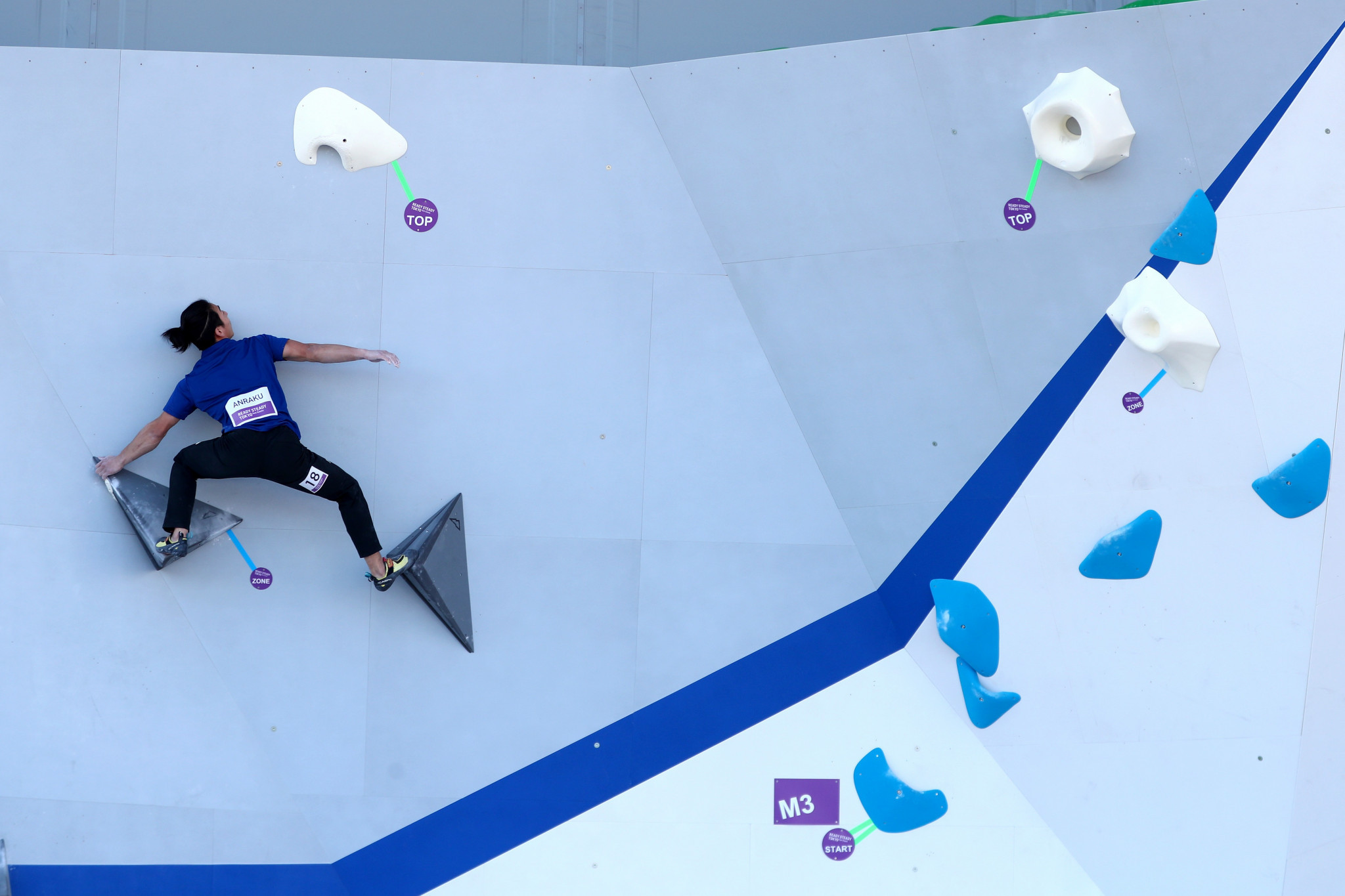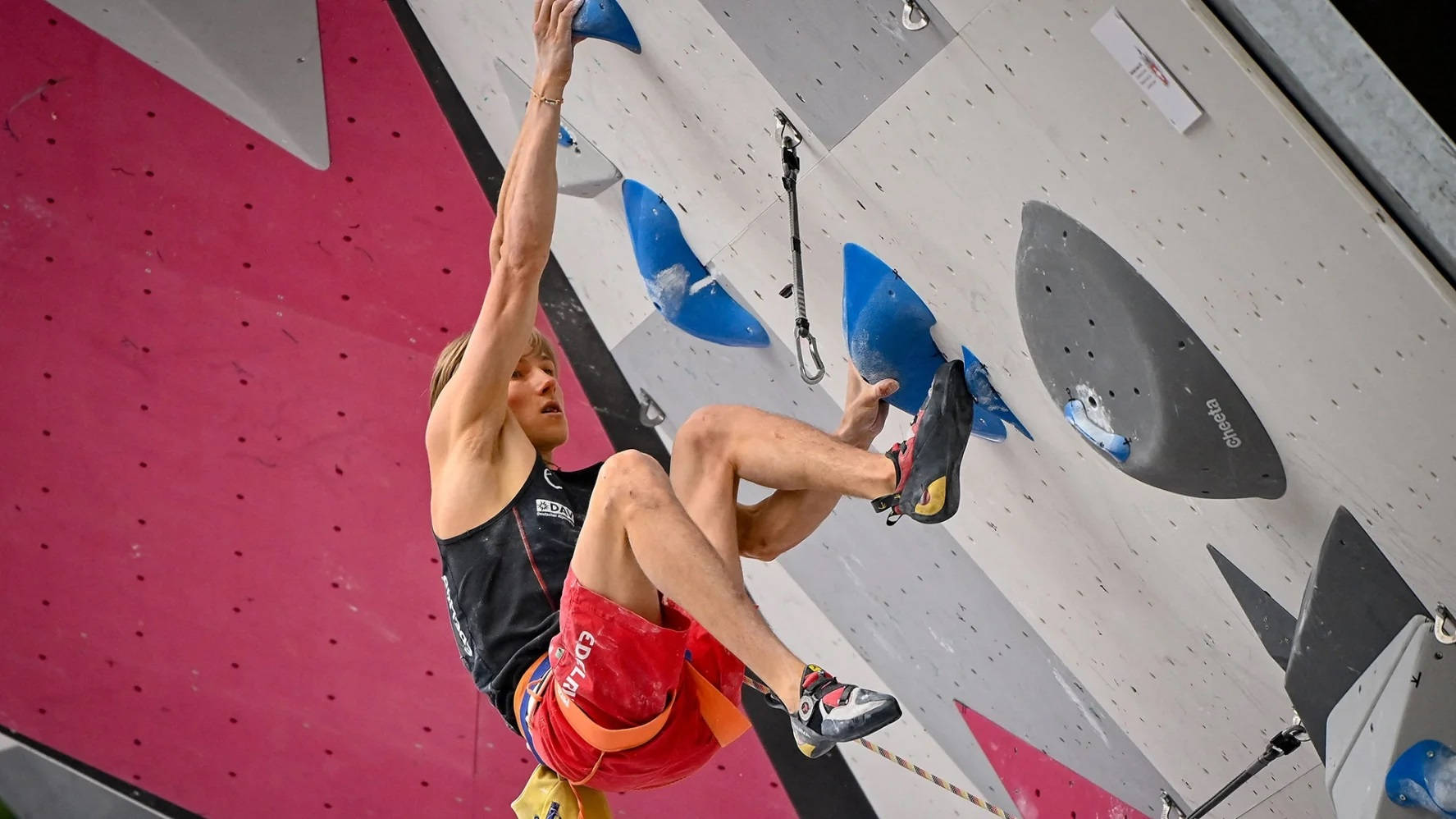Climbing Olympics 2024 Qualification Process

The Climbing Olympics 2024 qualification process is a multi-faceted system designed to select the most talented climbers from around the world to compete in the Games. The qualification process is structured to ensure fair representation from diverse climbing disciplines and regions.
Qualification Events, Climbing olympics 2024 qualifying
The qualification process for the Climbing Olympics in 2024 involves a series of events, each with its own unique format and significance. These events serve as platforms for athletes to earn valuable qualification points, ultimately determining their eligibility for the Games.
- IFSC Climbing World Cups: The IFSC Climbing World Cups are a series of international competitions held across various disciplines, including Lead, Bouldering, and Speed. These events are crucial for accumulating qualification points. Athletes must participate in a minimum number of World Cups to be eligible for Olympic qualification.
- Continental Championships: Continental Championships provide an additional opportunity for athletes to earn qualification points. These events offer a chance for climbers who may not have performed as well in the World Cups to secure a spot in the Olympics.
- Olympic Qualification Event: A dedicated Olympic Qualification Event is held to finalize the remaining spots in the Olympic field. This event serves as a last chance for athletes to prove their worth and secure a coveted place in the Games.
Scoring System
The qualification process utilizes a points-based system to rank athletes. The scoring system considers the performance of athletes in various events, assigning points based on their finishing positions.
The number of points awarded for each position varies depending on the event, with higher rankings receiving more points.
The athletes’ accumulated points determine their ranking on the Olympic qualification list. The top-ranked athletes, based on their points, secure their places in the Games.
Qualification Timeline
The qualification process follows a defined timeline with key dates that mark important milestones.
- Start of Qualification Period: The qualification period begins on a specific date, marking the start of the point accumulation process.
- End of Qualification Period: The qualification period concludes on a designated date, after which no further points can be earned.
- Olympic Qualification Event: The Olympic Qualification Event is held on a specific date, serving as a final opportunity for athletes to qualify.
- Final Qualification List: The final qualification list is published on a specific date, confirming the athletes who have secured their places in the Games.
Key Athletes to Watch: Climbing Olympics 2024 Qualifying

The 2024 Olympic Games in Paris will feature a diverse and talented field of climbers from around the world. The competition promises to be fierce, with several climbers vying for the top spots in each discipline. Here’s a look at some of the key athletes to watch.
Top Climbers from Different Countries
The Olympic climbing competition features three disciplines: bouldering, lead climbing, and speed climbing. Each discipline requires different skills and strengths. Here’s a look at some of the top climbers from different countries who are expected to compete in the Olympics:
- Adam Ondra (Czech Republic): Adam Ondra is considered one of the strongest climbers in the world. He is known for his incredible power and technical skills, and he has climbed some of the most difficult routes in the world. Ondra has won numerous competitions, including the World Championships in 2014 and 2017. He is expected to be a strong contender in all three disciplines.
- Janja Garnbret (Slovenia): Janja Garnbret is a dominant force in the bouldering discipline. She has won the World Cup bouldering title for the past five years and is known for her precise movements and powerful holds. Garnbret is also a strong lead climber, and she is expected to be a top contender in the Olympic competition.
- Alberto Ginés López (Spain): Alberto Ginés López is the first-ever Olympic gold medalist in climbing, having won the men’s combined event at the Tokyo 2020 Olympics. Gines is a versatile climber who excels in all three disciplines. He is expected to be a strong contender for another medal in Paris.
- Brooke Raboutou (USA): Brooke Raboutou is a rising star in the climbing world. She is known for her dynamic climbing style and her strong mental game. Raboutou has won numerous competitions, including the World Cup bouldering title in 2021. She is expected to be a top contender in the bouldering and lead climbing disciplines.
- Nathaniel Coleman (USA): Nathaniel Coleman is another strong contender from the USA. He is known for his precise movements and his ability to solve complex climbing problems. Coleman has won numerous competitions, including the World Cup lead climbing title in 2022. He is expected to be a top contender in the lead climbing and combined disciplines.
Climbing Styles and Competitive Strategies
Climbing styles and competitive strategies vary greatly among climbers. Some climbers are known for their power, while others are known for their technical skills. Climbers also employ different competitive strategies, such as focusing on one discipline or trying to excel in all three.
- Power Climbers: Power climbers are typically strong and explosive, and they excel at difficult moves that require a lot of force. These climbers often focus on bouldering, as it requires the most power and explosiveness. Examples of power climbers include Janja Garnbret and Adam Ondra.
- Technical Climbers: Technical climbers are typically precise and graceful, and they excel at complex routes that require careful footwork and body positioning. These climbers often focus on lead climbing, as it requires the most technical skill. Examples of technical climbers include Nathaniel Coleman and Brooke Raboutou.
- Combined Climbers: Combined climbers are versatile athletes who are able to excel in all three disciplines. These climbers often have a good balance of power and technical skills. Examples of combined climbers include Alberto Ginés López and Sasha DiGiulian.
Top 10 Athletes with Statistics
Here’s a table showcasing the top 10 athletes with their relevant statistics, based on their recent performance and overall achievements:
| Rank | Athlete | Country | Discipline | Notable Achievements |
|---|---|---|---|---|
| 1 | Adam Ondra | Czech Republic | All Disciplines | 2014 & 2017 World Champion, 9x World Cup Champion |
| 2 | Janja Garnbret | Slovenia | Bouldering | 5x World Cup Bouldering Champion, 2019 & 2021 World Champion |
| 3 | Alberto Ginés López | Spain | Combined | 2020 Olympic Gold Medalist |
| 4 | Brooke Raboutou | USA | Bouldering | 2021 World Cup Bouldering Champion |
| 5 | Nathaniel Coleman | USA | Lead | 2022 World Cup Lead Champion |
| 6 | Sasha DiGiulian | USA | Combined | 2014 World Champion, 4x World Cup Champion |
| 7 | Tomoa Narasaki | Japan | Bouldering | 2019 World Champion, 2x World Cup Champion |
| 8 | Alex Honnold | USA | Free Solo | 2017 Oscar Winner for Free Solo Documentary |
| 9 | Chris Sharma | USA | All Disciplines | 11x World Cup Champion, 2005 & 2008 World Champion |
| 10 | Angela Eiter | Austria | Lead | 2017 World Champion, 7x World Cup Champion |
Challenges and Opportunities in Climbing Olympics Qualification

The qualification process for the Climbing Olympics presents both challenges and opportunities for aspiring athletes. It requires climbers to navigate a complex system of events, rankings, and continental quotas, demanding strategic planning and consistent performance. While the qualification process can be daunting, it also serves as a platform for climbers to showcase their skills and gain valuable experience, ultimately contributing to the sport’s growth.
Challenges Faced by Climbers
The qualification process presents a number of challenges for climbers, including:
- The demanding qualification schedule: Climbers must compete in a series of events across different disciplines (lead, bouldering, and speed) over an extended period, requiring them to maintain peak performance and manage potential injuries.
- The competitive nature of the qualification events: The qualification process attracts climbers from all over the world, creating a highly competitive environment where athletes must consistently perform at their best to secure a coveted Olympic spot.
- The pressure of meeting continental quotas: Each continent is allocated a limited number of Olympic slots, creating additional pressure for climbers to secure a place within their region, even if they have achieved high rankings globally.
- The financial burden of travel and competition: Participating in international competitions requires significant financial investment for travel, accommodation, and equipment, which can be a major obstacle for climbers, particularly those from developing nations.
Opportunities Presented by Qualification Events
Despite the challenges, the qualification process presents valuable opportunities for climbers:
- Exposure to a global stage: Qualification events provide climbers with the opportunity to compete against the world’s best and gain valuable experience on an international stage.
- Improved ranking and recognition: Strong performances in qualification events can boost a climber’s world ranking, increasing their visibility and attracting sponsorships.
- Development of skills and strategies: The diverse nature of qualification events requires climbers to develop a broad range of skills and strategies across all three disciplines, enhancing their overall climbing abilities.
- Growth of the sport: The qualification process has helped to increase the popularity and visibility of climbing globally, leading to greater investment in the sport and the development of new talent.
Impact of the Qualification System on the Sport’s Development
The qualification system has had a significant impact on the development of climbing, both positively and negatively:
- Increased focus on speed climbing: The inclusion of speed climbing as an Olympic discipline has led to increased investment and training in this aspect of the sport, potentially neglecting other disciplines.
- Greater access to resources: The prospect of Olympic participation has attracted greater investment in climbing facilities and training programs, particularly in countries with strong climbing traditions.
- Increased participation and interest: The Olympic spotlight has brought climbing to a wider audience, attracting new participants and generating increased interest in the sport.
Hypothetical Scenario Illustrating Potential Impact of Qualification Changes
Imagine a scenario where the qualification system is modified to emphasize overall climbing ability rather than speed climbing. This could potentially lead to:
- A shift in training focus: Climbers might allocate more time and resources to lead and bouldering, potentially leading to advancements in these disciplines.
- Increased diversity in Olympic representation: Climbers from countries with strong lead and bouldering traditions, but weaker speed climbing programs, might have a greater chance of qualifying for the Olympics.
- A more balanced representation of climbing disciplines: The Olympics could showcase the full range of climbing disciplines, potentially attracting a wider audience and fostering greater appreciation for the sport’s diverse nature.
The climbing Olympics 2024 qualifying is heating up, with athletes pushing their limits to secure a spot in Paris. While they train for the competition, it’s interesting to note that planning an outdoor wedding can be just as challenging, especially when it comes to outdoor wedding chair arrangement.
The right seating setup is crucial for creating a comfortable and stylish ambiance, much like the careful planning and execution needed to excel in climbing competitions.
The qualifying process for the 2024 Climbing Olympics is intense, with athletes from around the world vying for a spot on the coveted team. To get a better idea of who might be making that final push, check out this article about climbing olympics 2024 athletes , and their chances of securing a place in the games.
The competition is fierce, and the qualifying events are sure to be a nail-biter, as athletes fight for a chance to represent their country on the world stage.